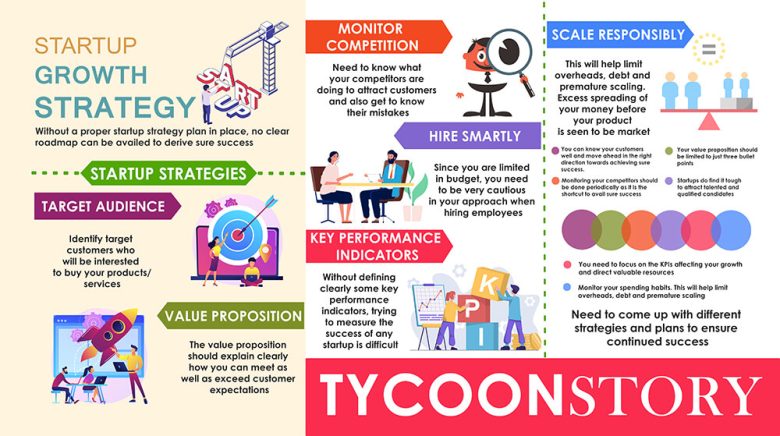The fact is that merely 50% or even fewer start-ups tend to succeed, while others close their business within five years. Without a proper startup growth strategy plan in place, no clear roadmap can be used to ensure success. If you have ideas, then make sure to convert them into profits. However, you need to come up with different Startup Growth Strategies and plans to ensure continued success. Following some simple tips will allow you to overcome disappointment.
Top Six Startup Growth Strategies
1. Identify the target audience
A realistic growth plan is likely to involve identifying target customers who will be interested in buying your products or services. Without understanding their specific needs, interests, and demands, you are likely to create the wrong products or services and send the wrong marketing messages.
You should gather survey data, analyze market data, and review personal networks. By doing so, you can get to know your customers well and move in the right direction towards achieving success.
2. Understand the value proposition
This is an important startup growth strategy. Here, the value proposition should explain clearly how you can meet as well as exceed customer expectations. Not being able to articulate a compelling value proposition is the reason for many start-ups to lose their path. It is crucial to set up a substantive value proposition to develop a successful business.
Otherwise, you are likely to experience trouble trying to engage potential investors, become a market leader, and generate positive cash flow. Careful analysis is essential for audience preferences and behaviors. However, your value proposition should be limited to just three bullet points, a sub-headline, and a headline.
3. Monitor competition
This is one startup strategy plan that you should not neglect. You need to know what your competitors are doing to attract customers and also learn from their mistakes. Your well-established competitors are likely to have solved some of the challenges that you are facing currently. Monitoring your competitors should be done periodically, as it is the shortcut to ensuring success. Some entrepreneurs might not carry out this task as they fear their products or services being inferior to those of their competitors. The other reason could be that they are not aware of the right steps to evaluate the competitive landscape.
4. KPIs (Key Performance Indicators)
Without clearly defining some key performance indicators, trying to measure the success of any startup is difficult. You need to focus on the KPIs affecting your growth and direct valuable resources where they are needed the most. But your focus should not be limited only to the KPIs, as the latter simply measure the outcomes. You need to make some small tweaks that will provide significant positive results for your business. Some popularly used metrics include CLV (customer lifetime value), CAC (customer acquisition cost), conversion rate, gross profit margin, and burn rate.
5. Hire smartly
Since you are limited in budget, you need to be very cautious in your approach when hiring employees. Bad hires are likely to affect your revenue, momentum, and traction. Startups do find it tough to attract talented and qualified candidates. However, selecting good employees is crucial for success. This is a startup growth strategy that many start-ups fail to realize and end up losing their business due to the wrong selection.
6. Scale responsibly
Monitor your spending habits. This will help limit overhead, debt, and premature scaling. Excess spreading of your money before your product is seen to be market fit will result in premature failure. Renting coworking space will help maintain a low burn rate and save huge amounts annually.
If you are interested in achieving success in your startup business, then follow the above startup strategy plan.





